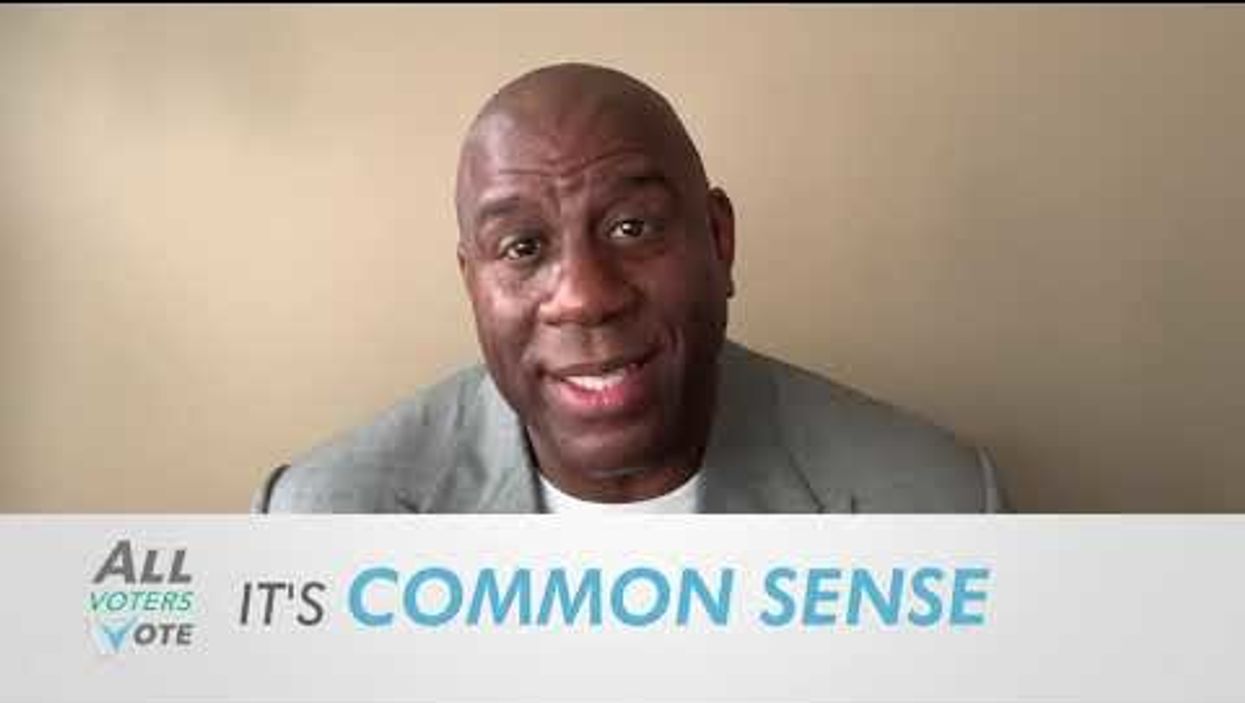NBA legend Magic Johnson, who just watched his Los Angeles Lakers defeat the Miami Heat in the league finals, has thrown his considerable star power behind the campaign to open most primaries in Florida to all voters, regardless of party.
The referendum on this fall's ballot in the nation's biggest purple state is being watched by many good-government groups as closely as any contest for office, because they view open primaries as one of the best ways to depolarize the nation's politics.
Although he ended his playing career 24 years ago, Johnson has remained one of basketball's most visible and charismatic ambassadors. And his endorsement follows on the heels of increased player activism that has led to dozens of sports arenas and stadiums being used as voting locations this fall.
"Amendment 3 will ensure that politicians listen to everyone. Join me in supporting Amendment 3 and let all voters vote," Johnson says in a 30-second endorsement video unveiled Tuesday. "It's simple, it's common sense and it's, well, it's magic."
Under the proposal, starting in 2024 the state would have "top two" open primaries in elections for governor, lieutenant governor, the Legislature and other state-level positions. All voters, regardless of party affiliation, would be able to vote in the primary, and the two candidates with the most votes — again, regardless of party — would advance to the general election. (Johnson lives in California, which uses a similar system for congressional and state primaries.)
The switch would allow almost 3.7 million unaffiliated Floridians — nearly 30 percent of the state's electorate — to participate at a crucial juncture in the electoral process.
Both the Republican and Democratic parties are fighting the amendment, which requires 60 percent support to pass. While proponents believe it would lead to more moderate candidates advancing to general elections, opponents argue it would create chaos and shut out minority viewpoints.
In fact, Republican Chris Sprowls, the next state House speaker, and Democratic Sen. Janet Cruz held a joint press conference Tuesday to support a lawsuit filed Tuesday that asks the Florida Supreme Court to toss the amendment — even though nearly 2 million ballots have already been cast.
"This can do irreparable damage to our political process. This is the political equivalent to a battle royal. Nobody understands who's going to be left out, nobody understands the damage that is going to be done to the process and who's going to be disenfranchised, which is why it shouldn't go into the constitution," Sprowls said at the press conference, according to the Orlando Sentinel.
Open Primaries, a national nonprofit that is supporting similar campaigns for open primaries in Alaska and St. Louis — welcomed Johnson's endorsement.
"Open primaries is pretty basic — we believe every voter should be able to vote in every publicly funded election. The partisan opponents of Amendment 3 in Florida make all kinds of false claims that if you let everyone vote, all hell breaks loose," said the group's president, John Opdycke. "Magic Johnson's endorsement is significant not simply because of who he is, but because of what he says. 'It's simple. It's fair. It's magic.' Democracy is indeed magic. When you create the space for everyone to participate, new conversations, new coalitions, new outcomes become possible."





















